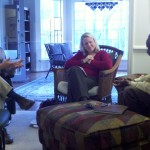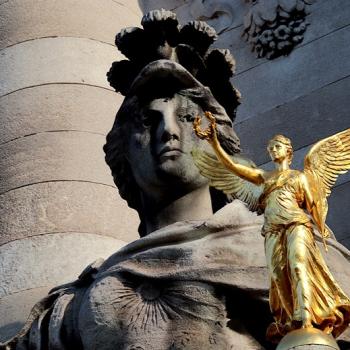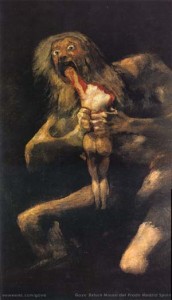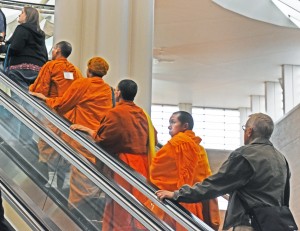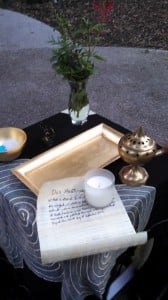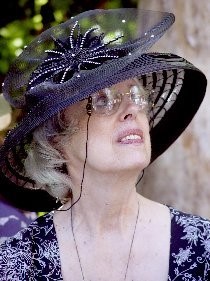“Let there be peace on Earth, and let it begin with me.” By Jill Jackson Miller and Sy Miller, 1955
This month I find myself trapped between the events of 9/11 and a Samhain that seems more and more filled with the angry voices of both the living and the dead. Perhaps that is why Mabon with its call for balance and for letting go of that which is not helpful seemed especially poignant. There is so much hatred and fear in the world and it seeps into our souls like some slow and insidious poison.
Of course with the anniversary of 9/11 fresh in our minds it is unsurprising to hear many speaking out across the religious spectrum against “Islam”. Having violence against us brought to the very shores of this nation that has never known foreign invasion or incursion is frightening. And hatred feeds on fear. The Muslim community here in the United States has taken the brunt of such prejudice and fear, mainly because most Americans haven’t taken the time and effort to understand the actual teachings of Islam and believe that all Muslims are also terrorists. The fact is that there are 1.6 billion Muslims in the world and of those only 0.1% are actually terrorists. Most of the terrorists do not even understand the teachings of the Prophet, peace be unto his name, and their actions are in direct contradiction to the teachings of the Koran. Yet we are led astray in our beliefs by our media and out politicians to believe otherwise. Even modern Pagans, who should know better, make assumptions of evil where none are called for.
Much the same situation is common within the Christian community as well. The vast majority of Christians are confident in their faith and do not find the non-Christian beliefs of others to be a threat to their own religion. Yet the voices most often heard, and which are therefore what we think of when we think of Christianity, are those of the far religious right. For this vocal minority, the existence of other faiths or who do not adhere to the literal truth of the Bible, challenges their own faith. For if we are right and they are wrong in this one thing, then they might be wrong in all things. These unhappy few hate Muslims because they do not view Jesus as the Son of God. They hate the Jews because the Jews “killed Christ.” They hate modern Pagans because we reject the Bible and look to Gods other than their own. Their hearts have become so filled with hatred that they have turned away from their own holy book to discriminate others, to commit acts of violence, and even to kill. Yet these religious zealots are less than 10% of all Christians in the US. It is only because of the media that they are as known as much as they are.
And I won’t let my own Pagan community off the hook here either. Although the modern Pagan movement was born out of dissatisfaction with the more prominent faiths, we have fallen victim to the same pitfalls of fundamentalism as other religions have done.
Most prominent of all are the prejudices amongst modern Pagans for the supposed crimes perpetuated against their ancestors hundreds if not thousands of years ago. This is ludicrous. Such crimes, even if they actually happened are part of the distant past, not the present nor, hopefully, the future. To hate someone based on something that happened long ago makes no more sense in modern Paganism than the hatred in the Balkans between Christian and Muslim over something that happened 500 years ago. Yet such hatred resulted in the deaths of thousands in the turmoil following the dissolution of Yugoslovia.
I am not denying that modern Pagans have faced discrimination based on their religious beliefs in modern times as well. My husband was a victim of such discrimination when he was denied the right to offer the invocation to City Council in June 2014. Others have indeed lost jobs, lost child custody, and been the focus of hatred and misunderstanding. Yet, to my mind, the answer to this problem is not to return hatred with hatred, but rather to reach out to those of other faiths with honest attempts at understanding and tolerance.
This is where interfaith work becomes so very vital in creating a more tolerant and loving world. We will not win the hearts of all through such work. For many the poison of hatred has hardened their hearts past redemption. Yet we must remember that loud that those voices of hatred might be, those that voice hatred are the minority of the myriads of humans upon this planet. Other hearts and minds can learn to move beyond misunderstanding to tolerance and peaceful co-existence if we are willing to reach out our hands and our hearts to them. The alternative is a path to disaster and potentially to the deaths of thousands if not millions.
I cannot speak for others here, only for myself. Yet I hold to the words of the song “Let it begin with me.”


